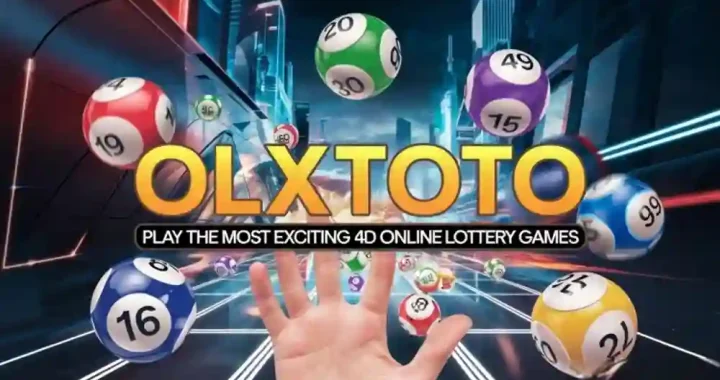Evolution of Online Casinos: Virtual Slots to Live Dealer Games

Online casinos have undergone a remarkable evolution since their inception, transforming from simple virtual platforms offering electronic slots to sophisticated gaming hubs featuring immersive live dealer experiences. This evolution has not only revolutionized the way people gamble but has also elevated the overall gaming experience to unprecedented levels. In this article, we explore the fascinating journey of online casinos, tracing their evolution from virtual slots to the advent of live dealer games.
The Emergence of Virtual Slots:
The roots of online casinos can be traced back to the early 1990s when the first virtual casinos began to appear on the internet. These early platforms primarily offered electronic versions of popular casino games, with virtual slots being among the most prominent offerings. Players could access a variety of slot machine games from their computers, enjoying the convenience of gambling from the comfort of their homes. While the graphics and gameplay were relatively basic compared to modern standards, these virtual slots laid the foundation for the burgeoning online casino industry.
Expanding Game Variety:
As online casinos gained popularity, they began to expand their offerings beyond virtual slots to include a wider range of games. Table games such as blackjack, roulette, and poker were introduced, allowing players to enjoy a more diverse gaming experience. These games featured improved graphics and enhanced gameplay mechanics, providing a more immersive and realistic casino atmosphere. Additionally, advancements in technology enabled all casino to offer progressive jackpot slots, multiplayer games, and other innovative features, further enhancing the appeal of their platforms.
The Rise of Live Dealer Games:
Despite the advancements in virtual casino games, many players still craved the authentic experience of playing in a real casino environment. This demand led to the introduction of live dealer games, a revolutionary concept that bridged the gap between virtual and land-based casinos. Live dealer games allow players to interact with real-life dealers and other players in real-time, using high-definition video streaming technology. Popular casino games such as blackjack, roulette, baccarat, and poker are now available in live dealer formats, providing an unparalleled level of immersion and authenticity.
Immersive Gaming Experience:
Live dealer games have transformed the online casino experience, offering players a level of immersion and realism that was previously unattainable. Players can see and hear the dealer, observe the action as it unfolds, and even interact with the dealer and other players using chat functions. This level of engagement creates a sense of camaraderie and excitement reminiscent of playing in a traditional brick-and-mortar casino. Additionally, the use of advanced camera angles and high-quality audio enhances the overall atmosphere, making players feel as though they are truly sitting at a casino table.
Technological Advancements:
The evolution of online casinos has been driven in large part by advancements in technology. Improved internet speeds, enhanced graphics capabilities, and the widespread adoption of mobile devices have all contributed to the growth and sophistication of online gaming platforms. Mobile compatibility, in particular, has made online casino games more accessible than ever, allowing players to enjoy their favorite games on smartphones and tablets while on the go. Furthermore, advancements in virtual reality (VR) and augmented reality (AR) technology hold the potential to further revolutionize the online casino experience, offering even more immersive and interactive gaming environments in the future.
Regulatory Challenges:
Despite their rapid growth and popularity, online casinos have faced regulatory challenges in many jurisdictions. Concerns about consumer protection, responsible gambling, and the potential for fraud and money laundering have led governments to impose strict regulations on online gambling operators. Licensing requirements, age verification procedures, and responsible gaming measures are now standard practices in many jurisdictions, ensuring that online casinos operate in a safe and transparent manner. While these regulations may present challenges for operators, they ultimately serve to protect players and maintain the integrity of the industry.
Conclusion:
The evolution of online casinos from virtual slots to live dealer games represents a remarkable journey marked by innovation, technological advancement, and shifting consumer preferences. What began as simple electronic versions of casino games has blossomed into immersive and interactive gaming experiences that rival the excitement of playing in a traditional brick-and-mortar casino. As technology continues to advance and consumer demand evolves, online casinos are poised to continue their growth and transformation, shaping the future of gambling in the digital age.


 Basket168 Daftar Now And Enjoy Big Bonuses Every Day
Basket168 Daftar Now And Enjoy Big Bonuses Every Day  Slot Gacor Today with Big Wins and Verified High RTPs
Slot Gacor Today with Big Wins and Verified High RTPs  Bandar Togel Online: Trusted Bets with Olxtoto’s Secure Platform
Bandar Togel Online: Trusted Bets with Olxtoto’s Secure Platform  Start Winning Now with the Bandar Slot Gacor Olxtoto
Start Winning Now with the Bandar Slot Gacor Olxtoto  Prediksi Macau Accurate Forecasts from TESLATOTO Today
Prediksi Macau Accurate Forecasts from TESLATOTO Today  Olxtoto Makes Online Togel Easy for New and Pro Players Alike
Olxtoto Makes Online Togel Easy for New and Pro Players Alike  90 Accurate Football Predictions Trusted By Expert Punters
90 Accurate Football Predictions Trusted By Expert Punters